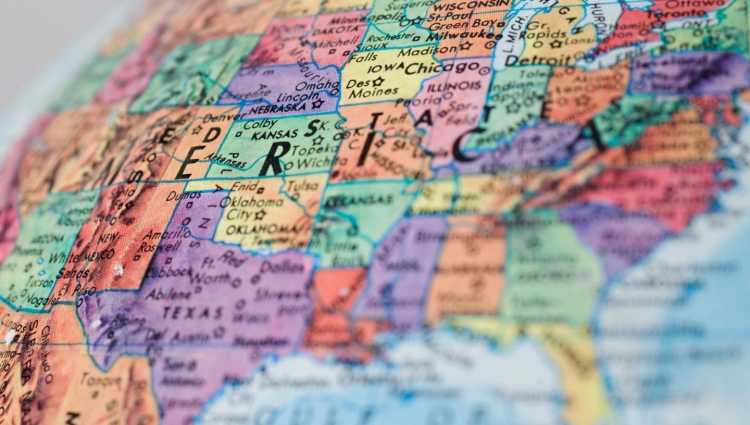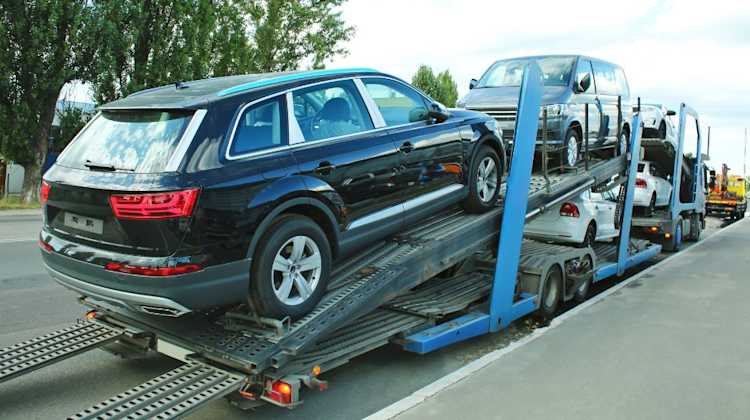Moving OCONUS - Part 2
by Stacey Faris - September 20th, 2021

PCSgrades is here to help you to navigate the ins and outs of an OCONUS move from the minute your spouse walks in and yells “Kon’nichiwa!” or “Guten Tag!” to the time you land back stateside. You can read Part One of our OCONUS series here.
Now that you are settled in your new country, hopefully, you are loving your time there! If you haven’t started taking advantage of what your host country has to offer, get that bucket list out now and start checking items off. What are you waiting for?
Start planning
As you have a great time in the present, make sure you keep an eye on the future. When it comes to prepping for a move back to the U.S. from an OCONUS location, procrastination is definitely not the way to go!
Long before that first notice of impending orders, there are steps you should be taking to make sure you are ready to say Sayonara, Auf Wiedersehen, Anneyong or Ciao.
Save, save, save
If you aren’t already, start saving money. Moving back is going to be expensive! A friend who moved from Japan to North Carolina last year was my inspiration for this series. Her family had prepared, but things were still challenging. Her recommendation for a minimum to have saved? $10,000. That’s a lot of cash and a lot of discipline required!
Joe Barry, Army, did a tour in Germany as a single soldier. Fortunately, an NCO told him early on that he needed to start saving $100 to $200 per paycheck. This happened long before any formal briefing would have been offered. Waiting too late into a 2-3 year tour to start saving means little ability to catch up as your tour comes to an end.
Victoria Gerth, an Air Force spouse, specifies, “Save twice what you think you really should or what you have heard. I would start saving a minimum of a year out from when you might be leaving. DO NOT WAIT until you get orders.”
Temporary lodging
Will you need a hotel before you fly back to the U.S.? What about when you return stateside? When you arrived overseas, you may have gotten up to 30 days of paid hotel nights. Coming back? Victoria says they were allotted a paltry 10.
For Air Force spouse D’Antrese McNeil, the return from Yongsan in Korea with “four kids and about 30 pieces of luggage,” was incredibly overwhelming. The departure from Korea was very expensive because they had to stay in a hotel for almost a week without a kitchen.
Can you imagine traveling across the world with kids and bags in tow and only having ten days to find a house? Aaron Duemmel, Army, who returned from Japan with his wife and two children was able to secure a rental property online before coming back. This appears to be the exception.
Every day in temporary lodging will take a substantial chunk from the money you’ve put aside. Seeking info from PCSgrades.com early and often can help shorten the time you spend in temporary lodging. Using this free website allows you to narrow down whether to live on or off base, and can even set you up with a realtor to help find the perfect home.
COLA – “Cost of Living Adjustment”
While you were living overseas, you received a Cost of Living Allowance to compensate for the additional local costs for food and gas when stationed overseas. Remember that when you move to a stateside duty station, you will most likely not receive that allowance anymore, and it could mean a substantial adjustment to your paycheck.
Joe makes it a point to have his returning service members receive better information than he did. “It’s imperative we make sure junior soldiers understand they will have a large pay cut from losing their COLA. I get quite a few Soldiers that still do not realize this when they report.”
Aaron said he knew his COLA would go away and BAH would change, but understanding when this would happen was a lot more confusing than it should have been. The loss of COLA isn’t the only monetary shock.
Out-of-pocket expenses
Returning to the States often means new purchases. If you didn’t buy a car overseas or leave one in storage when you left the U.S., you probably need to factor a vehicle purchase into your expense planning. While living in Japan, Victoria Gerth and her family spent $1,700 registering and paying fees on a vehicle purchased through the New Car Exchange.
You will also likely need to purchase cell phones for several family members in your household. Most phones used overseas cannot work in the States without a new SIM card… or they may be completely incompatible with US carriers. Call your previous cell phone company to get these details before your trip, so you can start saving for an updated device.
Be prepared to also pay cash for utility deposits if you don’t live on base. Deposits can easily run you more than $500. Add this to a deposit on your rental property, plus first and maybe last month’s rent and your savings will deplete really quickly!
Finally, you will be completely restocking a home when you return, which isn’t cheap. Let’s be honest; you aren’t going to pack cleaning supplies and dry goods in your travel bags, so plan to purchase everything during that first commissary trip.
Ship early
Beyond no longer receiving COLA, Joe says the next biggest challenge his soldiers face is the length of time it takes for household goods (HHG) and vehicles to make it back. His suggestion, “Ship early from overseas because they generally still have lending closets here to borrow common items whereas not all stateside bases have those.” Some military families report waiting almost three months for their HHG to arrive! That’s a long time to be in an empty home with no dishes or furniture.
Thankfully, you will get express shipment of Unaccompanied Baggage (UB) when you are returning to the States. Plan your departure in reverse of the way you first moved overseas: send the HHG out early, about a month before you move. Rely on the foreign base lending closet for temporary dishes and furniture. Then send your express shipment out about a week before your move, so it will hopefully be delivered to your new base around the same time you arrive.
Army spouses Carla Bushman and Arial Rau both agree that just as you did for your OCONUS travels, pack as light as possible. Arial suggests, “It’s best to pack a week’s worth of clothes in a carry-on along with your toothbrush and toiletries.” Carla adds, “Make sure you have a moving folder with all pertinent information; birth certificates, copies of IDs, orders, pet vaccinations/health certificates, passports, contact numbers, etc.” Don’t get stuck in an unfamiliar airport with all the kids, luggage and a language barrier only to realize you don’t have your orders printed!
Finally, while not imperative, if you have fallen in love with a food or beverage while overseas, you might want to pack some or ship it ahead. The move is certain to try your patience even if you’ve taken all proactive measures available. Having something you’ve grown accustomed to enjoying the last few years could make the first days of transition just a bit easier!






